By Eric Vandenbroeck and co-workers
The Resignation Of Lady Susan Hussey
As Prince William and
the Princess of Wales today take to the stage in Boston for a glitzy ceremony
featuring zeitgeisty figures from Billie Eilish to David Attenborough, the heir
to the throne risks being watched less for evidence of his leadership in
curtailing global warming than for urgent proof of the Royal Family’s ability
to remain relevant in a multicultural Britain and a shape-shifting world.
The lightning
resignation of William’s godmother, Lady Susan Hussey, over her persistent
questioning of the background of black British charity founder Ngozi Fulani at
a Buckingham Palace reception instantly cast a pall on Wednesday over not only
the Waleses’ American tour but also the nascent
efforts of the King and his eldest son to modernize and reshape the monarchy.
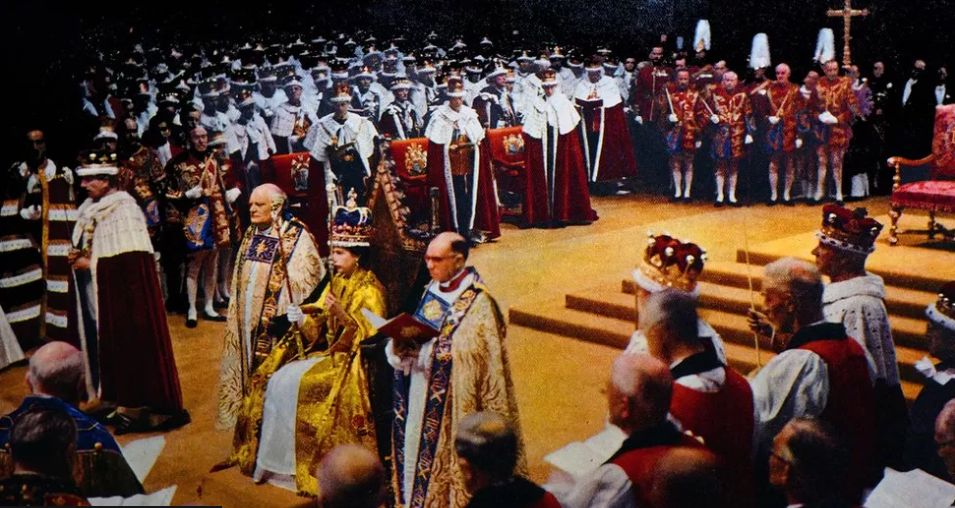
As Queen Elizabeth II
celebrated the “friendship, a spirit
of unity and achievements”
of the Commonwealth, Meghan, the Duchess of Sussex, and Prince Harry’s interview with
Oprah aired in the
U.K. that evening, pointing to the racism Meghan experienced within the
institution. Among the revelations were the couple’s descriptions of their
treatment by the British tabloid press, the lack of support from “The Firm” to counter racist media narratives, and purported concerns from a royal family
member over the color of their son Archie’s skin before he was born. But there
were many for whom all of this was hardly surprising.
Meghan, the family’s
first mixed-race member, said she had had suicidal
thoughts during her time
in the royal family and alleged that a family member had expressed
concern about her
child’s skin color.
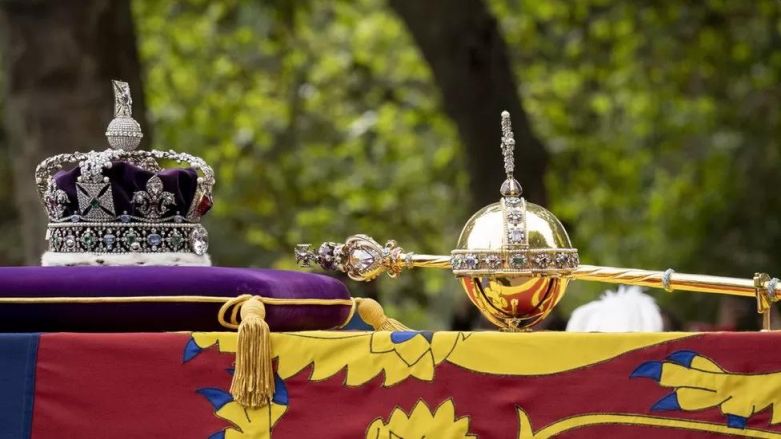
Queen Victoria's Curse?
Some historians
believe that Queen Victoria's public image of her family is primarily
responsible for today's monarchy and public perception of the Royal Family.
However, her reign was also imperial; by the time she abdicated the throne in
1901, the British Empire had expanded to include almost 20% of the Earth's
area, and the "Queen Empress" ruled over 25% of the world's people.
According to historians, the first royal tours across the Empire occurred
during Victoria's reign, when her sons were dispatched to visit the empire's
territories to "create a rapport between the monarchy and the regular
people across the Empire." Visits to Commonwealth countries have continued
to this day, including the Australia and Africa trips mentioned by Harry and Meghan
in their interview with Oprah.
The notion of the
Commonwealth was codified in 1926 when the leaders of Australia, Canada, New
Zealand, South Africa, India, the Irish Free State, and Newfoundland signed the
Balfour Declaration at the Imperial Conference. As former colonies in Asia and Africa
battled for independence from an Empire that had long enslaved them as part of
an established racist hierarchy, the Commonwealth grew to embrace this
postcolonial network of nations throughout the twentieth century. The
Commonwealth is now an international organization with 54 member countries and
a population of 2.4 billion people, led by the Queen, and seeking to promote
"development, democracy, and peace."
Looking back, we can
see how the royals have a complicated connection with people of color because
the monarchy has felt most popular and loved during their journeys to the
Commonwealth in recent decades. Despite the British Empire's turbulent and
white racist history, the Queen is a revered figure across the Commonwealth and
enjoys high popularity ratings within the United Kingdom. Meghan only admired
the monarch in the interview. As a biracial woman, Meghan also mentioned the
role she would have wished to continue performing as a working royal,
showcasing the Commonwealth's diversity and its people of color. However, Since then, Britain’s royal hierarchy has changed
dramatically.
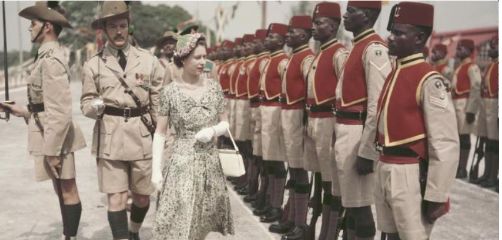
Queen Elizabeth and the
limitations of monarchy in the world
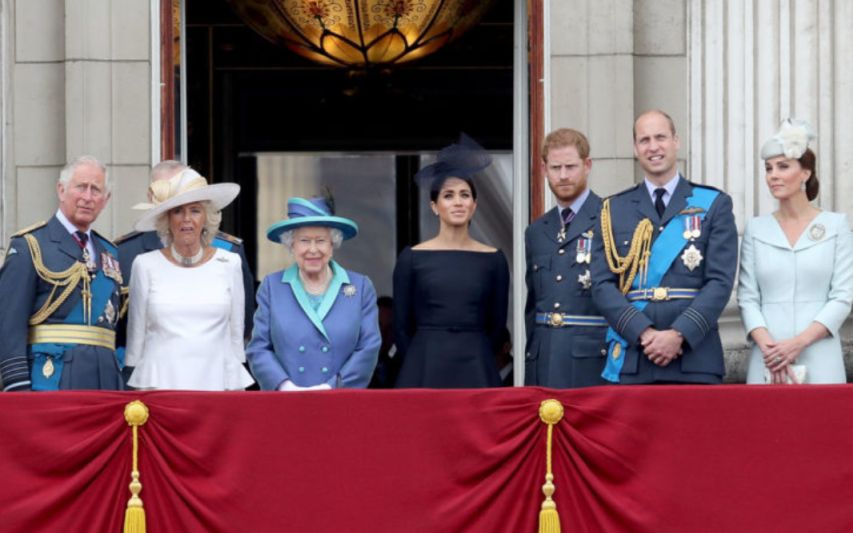
What Will Be With King Charles III
Then on 11 September,
King Charles III formally confirmed the country’s first new monarch for
seven decades, and several of his relatives stepped into new roles.
But there is a
troubling familiarity with the
first major crisis to
grip the newly reorganized institution.
A black British
charity leader has said she felt she was being forced to denounce her
citizenship when she was “interrogated”
by the late queen’s lady-in-waiting about where she “really
came from.”
CNN was told last year that the Queen dispatched Hussey and her
Dresser, Angela Kelly, to offer advice, guidance, and tutelage to Meghan after
she entered the royal family.
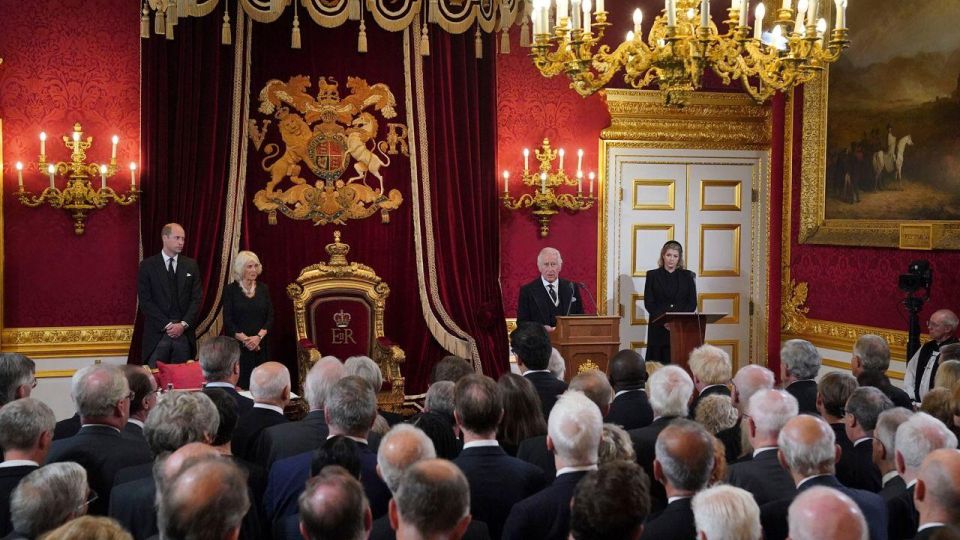
And while there is nothing
new to the idea that the House of Windsor will
ultimately fall, the accession of Charles and the grief, pomp, and ceremony
surrounding the death of Queen Elizabeth II has focused attention on the role
of the Royal Family like never before.
Following the state
funeral of a great queen and the dying down of a nation’s lamentations over its
loss, the United Kingdom is faced with the stark reality of a new era. The late
Queen was the very symbol and anchor of stability. Now that she has departed,
it is inevitable that a great clamor for change will come. Young people, in
particular, will not long stand a new king sitting atop a hierarchy based on a
social system of aristocracy that is by its very nature inegalitarian,
undemocratic, and rooted in the injustice of an outdated class system that
denies opportunities to those not born into it. As the poll in chapter one
shows, only 13% of UK youth thought Charles should become king, an astonishing
statistic.
Also, it is absurd to
believe that political stability and continuity require an eccentric and quirky
King Charles III to ‘reign over’ a populace still deemed ‘subjects’ by the
terminology of an outdated British legal system. Where is the common sense, the
justice, the logic in transferring all the old archaic values – last carried by
the late Queen who was born in British Empire and colonial times – to a new
king crowned in a modern age?
Underneath Pikemen
and Musketeers of the Honourable Artillery Company,
left, stand outside the Royal Exchange in the City of London on Saturday before
reading the Proclamation of Accession of King Charles III:
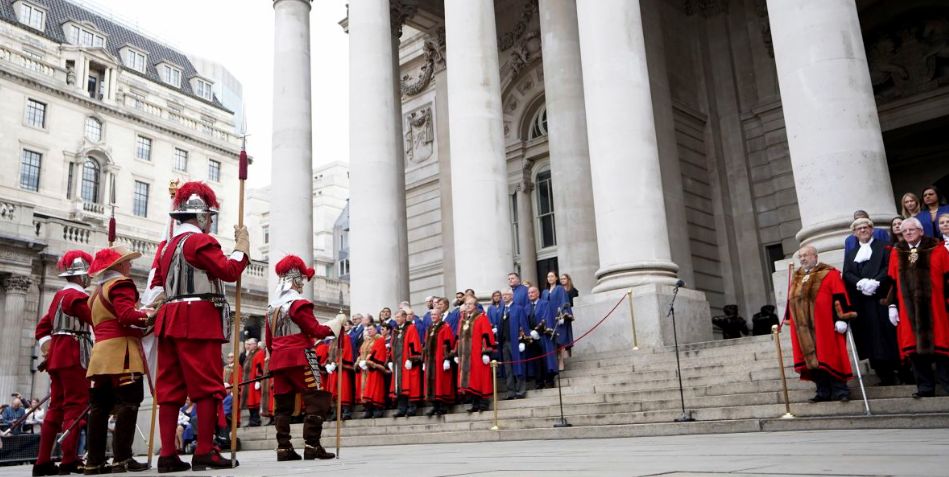
Alas, the signs are
already too clear. For a Royal Family in its present form to survive is not
only unlikely but also impossible. Criticism is coming from a broader base of
disenchanted Britons and growing in intensity and clamor for change.
How can we be sure of
this? While some anti-royal sentiment seems hateful and unfocused, most voices
have some valid and relevant criticisms to air. Organizations like ‘Republic’
have been very articulate in their criticisms of the Royal Family, and some of
their reasoning is included below. However, for the most part, the evidence for
the following four ‘problems’ of the Royal Family has been gleaned from social
media sites and posts, news, and magazine publications.
The Welsh people,
like the Scottish, also have a vast swathe of their citizenry demanding
independence. YouGov discovered that in a future referendum, 23% said they
would vote for independence, while 16% said they did not know. [Source: YouGov,
October 2020] Plaid Cymru currently holds 13 seats out of 60 in the Welsh
Assembly. More ominously for the pro-royal, pro-Britain faction, a poll by 2020
YouGov found that 43% of Welsh 18- to 24-year-olds supported independence. This
does not bode well for the Royal family's future and explains why Buckingham
Palace paid so much attention to Scottish and Welsh sentiment during the
mourning arrangements of the late Queen.
Too bad that
Buckingham Palace did not include Northern Ireland to the same extent, where
42% declared they would vote to be part of a united Ireland, with 9% saying
they did not know. Crucially, those wishing for a united Ireland include those
of Protestant and Catholic background, again with many young people looking to
leave behind the old order of the British Crown ruling over Ulster.
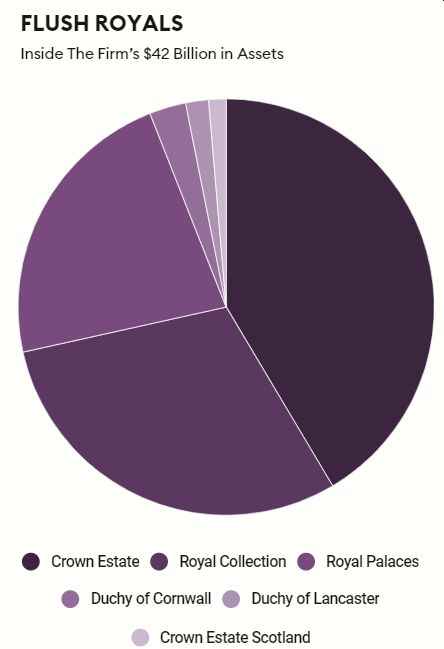
Why The House Of Windsor Will Ultimately Fall
There are four main
problems with royalty that the younger
generations of Great Britain cannot and will not allow indefinitely; these
are:
1. The office of
‘King’ in twenty-first century Britain has become absurd, untenable, and
contrary to good democratic government. The late Queen’s life spanned almost a
century, and her sovereignty brought the United Kingdom from the time of a
slowly crumbling Empire to the age of rapid, digitally-fast change and social
revolution. Statues get knocked down by angry mobs of WOKE young people;
university lectures are forced from office for adverse comments about the new
world of gender egalitarianism. The Queen’s favorite son Prince Andrew was once
the family's golden child, war hero, and heart-throb bachelor, superficially a
less boring contrast to the dour and stand-offish Charles – until the Duke of
York was weighed in the scales of public opinion and found wanting. Yet he
remained in his royal posts and occupations for nigh on twenty years after he
first became friendly with Jeffrey Epstein. Despite the press picking up on
possible misdeeds, Andrew remained in his privileged position, even serving as
a Counsellor of State after his disgrace over the Epstein affair and after
Charles succeeded their mother as monarch.
The difficulty here
is that Royal Family members are born into public office and service and cannot
simply be voted out and replaced by better candidates. The stark reality is
that the same privilege they inherit makes them eminently unsuitable as leaders
of military regiments, charities, universities, or organizations devised to
help and protect the underprivileged in a western democracy. And in charities
that require money for good causes, should members of the Royal family concern
themselves with righting the wrongs of an un-egalitarian society when their
conspicuous over-consumption makes them a part of the problem, not a means of
its remedy?
With Charles now
king, his opinions, his pet projects, and downright odd viewpoints will likely
continue to be projected and conveyed to those elected to power. But the public
will not stand for this. Like his brother, he is in danger of finding himself ‘canceled.’
Why? Quite simply, because he is unsuited to the task. If the King of the
United Kingdom job came up, and the people of Great Britain were interviewing a
thousand candidates, Prince Charles would probably be relatively low on the
list – perhaps even last.
The first tremors of
the earthquake have already happened. Prince Andrew has been humbled. Prince
Harry and his wife have caused a rift in the Royal Family. And yet the majority
of the House of Windsor remains in situ. Even Andrew still has his royal residence
and sufficient money to fund his lifestyle. There is no way that Charles will
escape criticism and blame for the sorry state of the Royal Family today.
2. Charles’ has
broken protocol innumerable times by writing to politicians and government
heads of departments. But with the Queen no longer on the throne, the new king
will be seen as an obstruction to progress, not a means of reform. Charles is
the very epitome of the problem. He is said to have made questionable
architectural, town planning, and even military interventions. He wrote
hundreds of letters yearly, which might adversely affect political
decision-making in Westminster and Whitehall. The prince is no intellectual.
His judgment is only that of one man outside the departments he seeks to
influence. If he continues this behavior, rest assured, the public will latch
on to his meddling and bring to bear the one thing Buckingham Palace cannot
withstand: highly critical public opinion.
Do the British people
think this man has anything of value to contribute to the intellectual debate?
When there are 24 royal residences with full-on heating (Buckingham Palace
alone costs upwards of three million pounds to heat and light), do we need him
telling the British public how to save the planet by running his Aston Martin,
as he says, on white wine? When the full spectrum of media light illuminates
this strange fellow, he will be canceled.
3. The problem
of waste and the squandering of resources alone is enough to rouse the
people of the United Kingdom into a frenzy. When the whole country is trying to
recover from a covid epidemic, rampant inflation, and a doubling in the cost of
domestic energy, the last thing we want to see is a bunch of Royals in top hats
going to the races or a rugby game in a helicopter.
But what exactly do
we mean by waste? The institution of royalty is an insane waste of public
finances, an insane waste of the world’s precious resources, and an insane
waste of time for the hundreds of servants and lackeys tied into meaningless
servitude for a largely idle and thriftless extended family that regards
ordinary people as inferior ‘subjects’ to be humored, or manipulated into a
mode of servile flattery so that their comfortable status quo may be
maintained.
There are twenty-four
royal residences ranging in size from gigantic to merely large and luxurious,
with most of their rooms heated and, for the most part, left empty! And how
many are used even in part on a day-to-day basis? Furthermore, even if taxpayers'
money wasn’t involved, is it ethical that vast amounts of fuel are burned to
heat and light such huge spaces when hard-working families struggle to pay
their power bills? Pensioners are dying of cold for a few pounds to pay for gas
and electricity to keep warm. Meanwhile, as I write this, Buckingham Palace’s
600 windows are illuminated, the heating is on full, and the King is snug in
Windsor Castle.
Perhaps £3 million
for heating and light is a drop in the ocean for the Royal Family. Let’s hope
one of the Palace’s 1,000 servants remembers to switch off the lights and heat
in the unoccupied rooms among the Palace’s 775 high-ceilinged rooms and 79 corridors
and landings. What a carbon footprint! What an example.
4. And then there is
the secrecy. With such spendthrift behavior, it is no wonder Buckingham
Palace goes out of its way to keep its finances secret. It has been
estimated16 that the Royal Family receives £345m a year from the public purse.
From the Royal Family's point of view, financial secrecy and obscuring the true
amounts paid by the taxpayer is essential because if the public focussed on where its hard-earned money went, it would
likely rebel instantly.
Helicopter trips to
Scotland for shooting parties or Kent for Golf or polo matches have been
observed. Charles once took a helicopter ride of 125 miles to a conference on
air travel emissions in Cambridge.
Regarding places to
live, members of the Royal Family have plenty of choices in where to reside.
There are 24 royal residences. And while some of the stately piles listed below
are privately owned, the fact that the royal family pays no death duties or inheritance
tax gives them a huge (some would say unjustly) advantage over the rest of the
population. The properties are: Residence/ location/ occupant/ crown or
privately owned
1. Buckingham Palace
(London) The King (CROWN) (Estimated £3m to power)
2. Windsor Castle
(Berkshire) The King (CROWN) (£1m to power)
3. Palace of Holyroodhouse (Scotland) The King (CROWN)
4. Hillsborough
Castle (Northern Ireland) The King (CROWN)
5. Sandringham House (Norfolk)
The King (PRIVATE)
6. Balmoral
(Scotland) The King (PRIVATE)
7. Craigowen (Scotland) The King (PRIVATE)
8. Clarence House
(London) The King (CROWN)
9. Highgrove
(Gloucestershire) William/Kate (DUCHY OF CORNWALL)
10. Llwynywermod (Wales) William/Kate (DUCHY OF
CORNWALL)
11. Tamarisk (Scilly
Isles) William/Kate (DUCHY OF CORNWALL)
12. Birkhall (Scotland) King Charles (PRIVATE)
13. Kensington Palace
(London) Prince William, the Duke of Gloucester, Prince and Princess Michael of
Kent (CROWN)
14. Frogmore Cottage
(Windsor) Princess Eugenie, Jack Brooksbank (CROWN)
15. Ivy Cottage
(London) Princess Eugenie (CROWN)
16. Bagshot Park
(Surrey) The Earl and Countess of Wessex (CROWN)
17. Royal Lodge
(Windsor) The Duke of York, Princess Beatrice, Princess Eugenie
(CROWN)
18. St James’s Palace
(London) Princess Anne, Princess Beatrice, Princess Alexandra, Lady Ogilvy
(CROWN)
19. Wren Park
(London) The Duke and Duchess of Kent (CROWN)
20. Thatched house
Lodge (London) Princess Alexandra, The Honourable
Lady Ogilvy (CROWN)
21. Anmer Hall
(Norfolk) Prince William and family (PRIVATE)
22. Gatcombe Park
(Gloucestershire) Princess Anne (PRIVATE)
23. Barnwell Manor
(Northants) The Duke and Duchess of Gloucester (PRIVATE)
24. Adelaide Cottage
(Windsor) William/Kate (CROWN)
Buckingham Palace
alone has 775 rooms, with 78 bathrooms. There are roughly 100 toilets in the
palace, with none of the latter available to the public when the parts of the
building are thronged with tourists on its open days! Furthermore, Buckingham
Palace toilets and bathrooms are strictly segregated between royalty and
servants, and all palace staff is fully conversant about where they may go and
where they may not.
For updates click homepage here